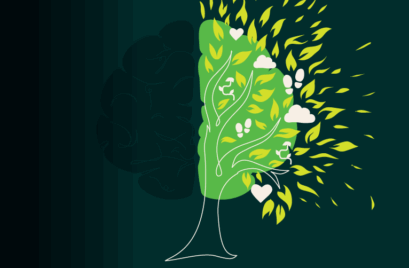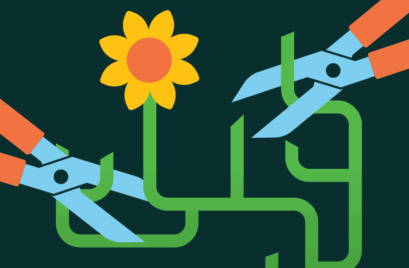
“When I think of the best of L&D, it’s about helping everyone find the way that they shine.” Maria Laws.
“Career Development is fundamental to our employee value proposition, and learning is a key business metric.” Rajnish Borah. Global Head of Organisation Effectiveness & Learning, WNS Global Services.
Along with all the other fast-moving changes in today’s workplace, learning and development is on its own trajectory. We are now faced with training multigenerational teams who prize mobility, flexibility, and a sense of meaning and purpose in what they do. For leaders, learning providers, and specialists, this signals a great opportunity to step into the challenge of how workplace learning needs to evolve.
To begin with, an expectation is emerging that workplace education and training will become less of a separate activity and more sleekly integrated into our day-to-day, as we reap the benefits of more immersive technologies. Couple that with a growing realisation that, due to the impending global skills shortage, building the capabilities of our internal talent will potentially be a more effective talent strategy than constantly looking outward, and we have a perfect storm for an inhouse learning revolution.
Talent Retention over Talent Attraction
This is not to say that organisations shouldn’t also look externally to recruit the brightest and best. But with a looming skills deficit predicted, there may simply not be enough to go around. Despite evolving AI and increased automation, a Korn Ferry report finds that by 2030, more than 85 million jobs could go unfilled because there aren’t enough skilled people to take them.
In the face of this, working to develop internal capabilities and striving to provide the right environment to retain talent, may be a more effective focus than the constant search for the right people. Given either some retraining or professional development, the answer to our workforce needs may well be in front of our noses.
Yet, if we choose to focus inward on capability building, we are faced with another set of complexities.
Multi-Generational Learning
With a five-generation workforce now a reality, it’s important that we understand the composition of our teams and cohorts and how they might best learn. For instance, we know that Millennials and Gen Zs favour continuous and lifelong learning, with an emphasis on a multi-modal approach. This might include a range of approaches such as mentoring, gamification, peer-to-peer knowledge sharing, immersive experiences, and cross functional collaboration. Though learning for these generations should be personalised, there is a trend toward it being less individual and more social. There is also recognition that microlearning in short, sharp ten-minute grabs is consummate for busy, device-oriented younger team members.
Informal learning, which encourages team members to strengthen their networks in order to maximise knowledge sharing, has also been traditionally undervalued. Deeper and broader relationship systems at work can serve as the basis of co-agency learning, which is described as “the interactive, mutually supportive relationships that help learners to progress towards their valued goals.”
Research shows us that learner agency is best enabled by a sense of personalisation, which is fuelled by the learner’s passions. In a work context, this suggests the importance of building synchrony between individual and organisational purpose and values. When a team member’s passion aligns with the business’s goals and visions, they will be highly motivated and curious to learn.
Learning Directions for the Future
From a broader educational perspective, the OECD Education 2030 project has identified three transformative human competencies that will shape our future. These include being:
- Innovative – Creating new value
- Aware – Reconciling tensions and dilemmas
- Responsible – Taking responsibility
Unlike traditional technical “expert” skills, these are self-aware, growth mindset, consciousness-raising soft skills. And one way that some organisations are trying to get ahead on meeting this need is through Capability Academies. Capability Academies are immersive, digital learning platforms sponsored by organisations who decide which skills they should focus upon. “An Academy is focused on building real business capabilities, yet doing it in a scalable, open, and ever-improving way.”
Other relevant pedagogies for future learning include:
- Teach-back – this is mutual (sometimes bottom up), exchange of information between two people on a similar learning trajectory
- Place and project-based learning – place and project-based learning relates to applied opportunities in work and community settings
- Robots – social robots will be the next generation of teachers
- Drones – drone-based learning can enhance learning in outdoor environments
- Learning from task-shifting – re-distributing specialised tasks, where appropriate, to less specialised team members
- Talking about learning – helps the learner to process and integrate information
- Moving about – connected to place and project-based learning, it taps into the benefits of experiencing the variety of skills and ways of working in the system
- Campaign-based learning – as the name suggests, it uses a marketing approach to an upcoming learning experience, including polls, competitions and engaging news
Whichever, combination of pedagogies you might consider employing, two factors should underly your choice: technology and generational needs. That doesn’t simply relate to today’s five-generation landscape, either, but also what is to come. Try keeping these key words top of mind: seamless, personalised, social, aligned, and applied.
And if you’re an employer, remember: “People who aren’t learning will leave.”







